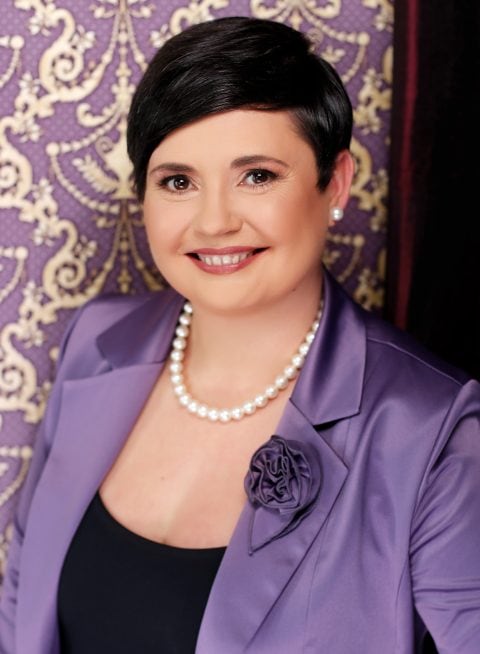This year, November 17 was for me a day of euphoria. While the Czech Republic was celebrating 25 years from the Velvet Revolution, Romania was experiencing a revolution of its own kind. Curiously, the event got almost overlooked by the Czech media.
On the morning of November 17 it was pretty clear: Romania was having a new president.
In one of the most dramatic election races the country experienced after the fall of communism, Klaus Iohannis, a 55-year old former professor of physics and mayor of the town of Sibiu, in central Romania, was confirmed to be the newly elected Romanian president.
Why, would you say, is the democratic election of a new president in a democratic EU country a revolution? Here is why:
- Klaus Iohannis is a German ethnic. In Romania, the German minority represents 0.2% of the population.
- Klaus Iohannis is a Lutheran in a country where 81% of Romanians are devoted church-going Christian Orthodox.
- In a country where the family is a capital value, Iohannis is married to a most charming and supportive English teacher, Carmen Iohannis. Yet they are childless.
- Klaus Iohannis is slow. As opposed to the flamboyant profile of Victor Ponta, fully in line with the image of noisy Balkans many have of Southern Romania, Iohannis is slow and calculated. He thinks through each word he says, he sticks to facts and makes only promises he knows he can keep. Put together Angela Merkel and Silvio Berlusconi in a presidential race and you’ll have a better picture of what I mean.
- He speaks differently. To many, Iohannis’s speeches bring a light breeze of history textbooks. Rhetoric weakness or calculated strategy? Iohannis is the first to admit that he’s not a brilliant public speaker and that he prefers to let deeds speak in his name.
How did Iohannis do it?
During the elections campaign Klaus Iohannis, who represented the right wing Christian-Liberal Alliance, gathered Romanians around the slogan of a country of the work well-done. He cleverly turned Romanians’ fascination with German quality into an advantage for his public image.
However, after the first election round, he came second with 30.37% of the ballot compared to 40.44% for his rival, Victor Ponta, the current Prime Minister and representative of the Social Democratic Alliance. In an unstable political environment of wobbly alliances, things didn’t look too bright for the right-wing candidate.
Two weeks later, everything was different. Iohannis was elected the new Romanian president with 54.43% percent of votes or a million votes more than his political opponent.
What happened?
For the first time in the history of modern Romania, two factors had a decisive word on the elections outcome: social media and the huge community of Romanians living abroad – the so-called Diaspora. It is estimated that more than 3 million Romanians with the right to vote are currently living abroad.
Even during the first round of elections, vote sections abroad – mainly in Paris, London, Munich or Berlin – were taken by assault. Romanians woke up early to make sure they can cast their ballot – one of the few tools to stay in touch with the homeland and have a word to say in the happenings back home.
Voters abroad were met with a big surprise: the election sections weren’t by far ready for the large number of voters.
Romanians found themselves sitting for hours in a row in the cold and rain in queues longer than the queues for meat during the communist regime.
Frustrated, they made their voice heard on social media. Romanian TV crews started to broadcast dramatic images with the voters standing outside embassies, protesting against the humiliation.
Images and videos started to gather on social media, creating a parallel reality: one in which Romanians started to act like one regardless of their location.
Huge protests were organized in major Romanian cities for the support of the Romanians voting abroad.
25 years after the fall of Ceausescu, Romanians were in the streets again. This time, no bullets: social media posts on Facebook and Twitter were enough to keep the blood boiling during the first election round and during the two weeks between the polls.
How to lose elections and go get a drink
You may wonder what Victor Ponta, the presidential candidate and Prime Minister did during the two key weeks between the polls to calm the spirits and fix the situation.
Well, as disclosed later by the Romanian media, he did very little. Romanian media published speculations that diplomatic bodies abroad received orders to communicate that they are doing their best to create more voting capacity, but in fact they were encouraged to do as little as possible. Social Democrats knew that Romanians living abroad could not be bought with bags of rice and sausages or by Sunday prayers against the pagan alien Iohannis.
By doing so, Social Democrats underestimated the power of social media, which for the first time counter-balanced the local media propaganda.
On November 16, Romanians took election sections by assault. The presence at vote – 64% – was the largest in Romania’s modern history.
The outcome? The alien, the Lutheran, the slow yet determined Klaus Iohannis won the presidential mandate with 54.43% of the ballot, outclassing his candidate with over 1 million votes.
Victor Ponta lost the presidential elections because of stunning arrogance in dealing with a nation that is waking up.
His reaction? Immediately after the official results were made public, he communicated he had no intention to resign as a Prime Minister and he took off on holidays, first with his family, than with his political advisor Sebastian Ghita in Abu Dhabi. Romanian media reported that he spent time in a club where only the entrance cost $150. Sound message for his social electorate, for whom this budget is often their entire monthly revenue. To add insult to the injury, it is still not clear if he paid for his vacation from his own pocket or from the state budget.
More hopes than on Obama
Romanians’ expectations now lying on Iohannis’s shoulders are enormous – as it is visible in the thousands of comments of support on his Facebook page.
To a wide extent, Romania experiences a similar euphoria as the United States after the election of Barack Obama.
So far, Iohannis and his team have been doing a tremendous job in keeping people informed on his steps. He uses videos to make his voice heard and social media posts to inspire and bring people together.
He will be appointed the new president on December 22, symbolically 25 years after the Romanian Revolution brought down Ceausescu’s regime.
Iohannis understood that, with 3 million Romanians living abroad, the nation is not only the people at home. The nation is a virtual state of spirit that can draw Romanians – their know-how and budgets, too – together again. The sky is the limit for a wise use of such resources.


